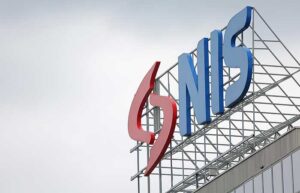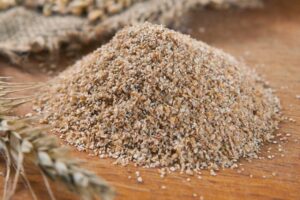
According to Serbian Economist, Serbian oil and gas company NIS has announced the signing of a contract to import the first batches of oil via the Adriatic oil pipeline (JANAF) for the refinery in Pančevo and preparations to resume processing after a shutdown in early December 2025 due to a shortage of raw materials amid sanctions restrictions.
According to Reuters, the first shipment includes about 85,000 tonnes of Iraqi Kirkuk oil, followed by a smaller batch of Libyan Es Sider. These volumes will keep the plant running for at least a few days, and Serbian President Aleksandar Vučić has predicted that the refinery will be able to resume operations on 17-18 January, with the production of petroleum products likely to begin on 25-26 January.
The resumption of imports became possible after the US Treasury’s Office of Foreign Assets Control (OFAC) issued a temporary licence allowing NIS to continue operating until 23 January 2026. Reuters also reported that a separate licence had been issued to the operator JANAF to transport oil for NIS for the same period.
The situation surrounding NIS remains linked to negotiations on changes to its ownership structure. The US is awaiting negotiations on the withdrawal of the Russian share, with the deadline for the negotiation process extended to 24 March 2026, and Hungarian company MOL is named as one of the participants in the discussions.
NIS is a key player in the Serbian fuel market: the company owns the country’s only oil refinery (Pančevo) and the largest network of petrol stations, so any disruption in the supply of raw materials directly affects the balance of the petroleum products market and Serbia’s import needs.

In December 2025, Ukraine significantly increased its electricity imports – by 54% compared to the previous month, to 639.5 thousand MWh, which was the highest figure since July 2024, the DIXI Group analytical center reported on its website on Wednesday, citing data from Energy Map.
“The increase in imports occurred against the backdrop of a deterioration in the power grid due to massive attacks by the Russian Federation on energy infrastructure and seasonal growth in consumption,” the center said.
During December, Russia carried out four massive attacks, targeting electricity generation, transmission, and distribution facilities. In particular, the attacks on December 6 and 23 led to a forced reduction in the generation of nuclear power plants, which provide more than half of Ukraine’s total electricity production. An additional factor contributing to the increased load on the power system was a significant drop in air temperature throughout the country, which led to an increase in energy consumption.
According to Energy Map, the increase in supply volumes was usually recorded the day after or two days after the shelling, during a period of reduced available generation and growing power shortages. Thus, after the attack on December 6, imports increased to 21.3 thousand MWh on December 7 (+18%) and to 32.6 thousand MWh on December 8 (+81%). A similar trend was observed after other massive strikes that took place on December 13, 23, and 27.
In December, Hungary accounted for the largest share of imports – 41%. Slovakia accounted for 21%, Romania and Poland for 18% each, and Moldova for 2%.
In December, the maximum transmission capacity of inter-state crossings for electricity imports increased from 2.1 GW to 2.3 GW. On average, the available transmission capacity was used at 37.4% during the month.
“Thus, December 2025 was the third consecutive month that Ukraine ended as a net importer of electricity,” DIXI Group emphasized.
On the other hand, Ukraine did not export electricity in December. The last time zero export volumes were recorded was in August 2024.

Initial registrations of used passenger cars imported from abroad in 2025 increased by 22% compared to 2024, reaching 278,630 units, according to the Automotive Market Research Institute.
The annual import rating is headed by the unchanged leader — Volkswagen (37,200 cars), which, according to experts, offers everything from budget options to premium crossovers, as well as buses and vans.
“Audi (25,900) ranks second, which indicates Ukrainians’ high demand for comfort and status,” the Institute’s website says.
At the same time, it is noted that the main event of the year was Tesla’s entry into the top three with 24,140 cars registered.
“The purely electric brand surpassed many traditional competitors, becoming a symbol of the ‘green’ craze of 2025,” the report states.
The top five are rounded out by Nissan (21,600) and Renault (almost 17,000), which maintain their positions thanks to a combination of popular electric cars and practical diesel cars from Europe.
Next in the top ten brands are BMW, Hyundai, Ford, KIA, and Skoda.
Experts note that Volkswagen Golf retained its leadership in the model ranking (10,670), but its lead over its competitors is minimal (and not without the help of e-Golf).
The main competitor is the Tesla Model Y (10,550), and third place goes to the Tesla Model (9,200). Fourth in the ranking is the Skoda Octavia (7,700), and fifth is the Nissan Leaf (7,500).
“As for premium models, last year the Ukrainian car fleet was replenished with Porsche (1,265 units), Maserati (97), Lamborghini (21), Rolls-Royce (17), and the same number of Bentley, Ferrari (8), Aston Martin (6), and one McLaren,” the report says.
Experts report that in December last year, 41,700 used imported foreign cars were submitted for first registration, which is almost 2.7 times more than in December 2024 and 75.3% more than in November 2025.
The report notes that since the beginning of 2025, import volumes have gradually increased: from 14,500 cars in January to almost 42,000 in December.
“The last time such volumes of ”freshly imported“ cars were seen was in 2022, during the temporary ”zero customs clearance” period. Now, this activity has been caused by the ‘race for electric cars’, as VAT on their import was introduced on January 1,” experts note, stating that this is why Tesla is among the top three leaders.
“Overall, we have seen a 22% increase in imports over the year, but it should be understood that a significant portion of these cars were purchased ‘in advance’. We have actually taken a portion of sales in 2026, so now the warehouses are full, and there will be no such rush in the coming months,” Stanislav Buchatsky, head of the Automotive Market Research Institute, is quoted as saying in the report.

Ukrainian cheese producers are ending the year without the expected pre-holiday sales boost, although consumption traditionally increases in December, with more and more buyers preferring European cheeses because of their lower price, according to the industry analytical agency Infagro.
Analysts noted that the supply of inexpensive imported cheese on the Ukrainian market increased significantly at the end of 2025. Already, according to estimates, a significant share of semi-hard cheese sales comes from EU products, and this trend is likely to intensify.
“Sales of domestic products were supported mainly by active promotions, which had a negative impact on margins. Anticipating weaker demand in January, producers reduced production volumes at the end of the year, and at the end of the year, the output of hard and semi-hard cheeses decreased compared to last year,” experts noted.
According to their information, market participants do not expect a decline in imports next year, as European cheese remains competitive in terms of price. Even during promotions, Ukrainian cheeses are often more expensive than their imported counterparts, forcing manufacturers to either offer deep discounts or reduce production.
“Exports remain an alternative to the domestic market for some producers, where price conditions are more attractive,” analysts said.
Infagro emphasized that the processed cheese market remains relatively stable, without sharp fluctuations in demand or production, making it one of the few balanced niches in the cheese segment.

In 2025, Moldova was heavily dependent on imports of milk and dairy products, with Ukraine supplying more than two-thirds of the product to the local market, according to the Moldovan publication rupor.md, citing data from the republic’s Customs Service.
According to Moldovan customs, in January–November 2025, Moldova imported 26.7 thousand tons of milk and dairy products worth a total of $23.4 million. The largest volume of raw milk as a raw material came from Ukraine — 16.8 thousand tons (66.1% of total imports). Romania, Poland, and Belarus are also among the leaders in milk raw material supplies.
According to customs data, Moldova also imported finished dairy products, including sour cream and milk mixtures.
In the segment of full-fat sour cream (over 10%), Ukraine’s share was even higher — over 80% of imports. In addition, Ukraine led in the supply of milk and sour cream with added sweeteners, accounting for almost 68% of imports.
Ukraine significantly outperformed its competitors from Romania, Poland, and Belarus in the supply of dairy products.
“Moldova’s dependence on milk imports from Ukraine is due to close trade ties between the countries and geographical proximity, which significantly reduces logistics costs for importers,” Moldovan experts explained.

In December 2025, Tunisia imported 6.2 thousand tons of Ukrainian bran and feed flour (HS code 2302) worth $1.1 million, which is almost 26% of the total volume of supplies from Ukraine during this period in physical terms, according to the information and analytical agency “ APK-Inform ” reported.
“These are the first deliveries of this type of Ukrainian product to Tunisia since the beginning of both the marketing and calendar year. At the same time, in 2024, this country did not purchase the specified Ukrainian products,” analysts said.
According to their information, since the beginning of the 2025/26 marketing year (July 1 – December 23), Ukraine has supplied 168.6 thousand tons of bran and feed meal to foreign markets for a total of $26.8 million. The main buyers were Turkey (111.2 thousand tons), Syria (15.6 thousand tons), and Romania (9.7 thousand tons).
“In 2025/26 MY, flour production in Ukraine may reach 1.9 million tons (-8.4% compared to 2024/25 MY), which will result in wheat bran production of 530 thousand tons. At the current export rates, this will allow the export potential of this segment to reach 320-330 thousand tons, which is 8-11% less than in the previous marketing year,” APK-Inform noted.